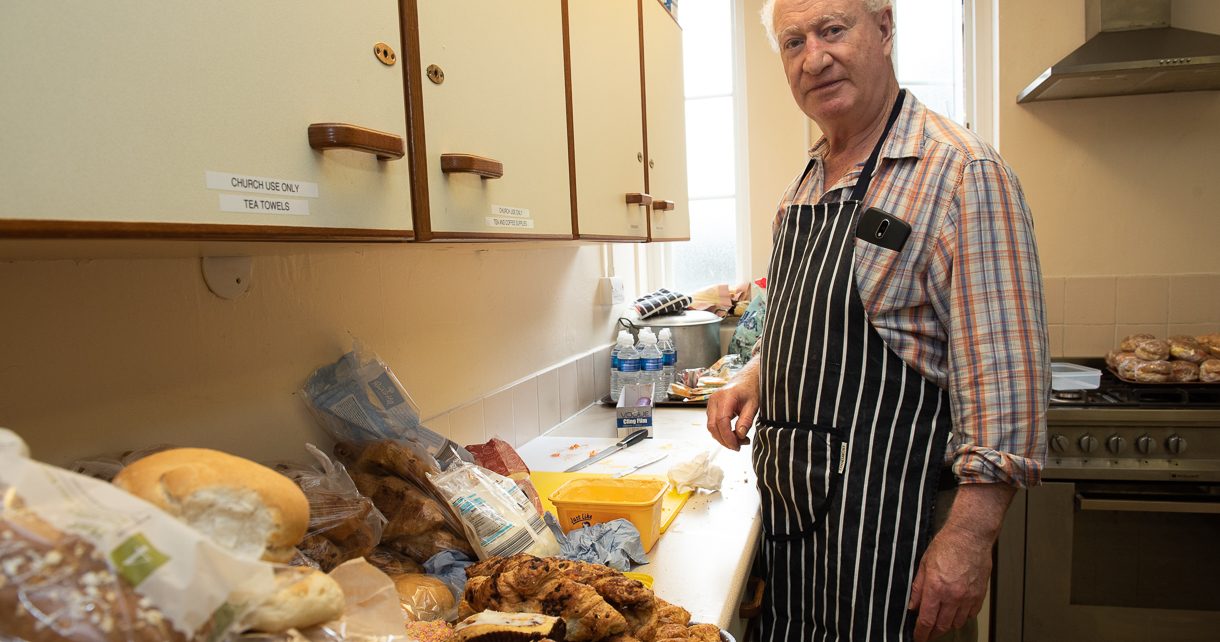Tougher times ahead?
The pressure is on for the Treasury to help â€just about managing’ families in next week’s Autumn Statement, with groups and MPs from all sides calling for measures to help those households who are now struggling and are expected to suffer even more under a projected post-Brexit slump.
â€Just about managing’ families – now referred to as â€jams’ in Whitehall – is a new term coined by Theresa May’s government, akin to David Cameron’s â€hard-working families’ or Ed Miliband’s â€squeezed middle’.
Chancellor Phillip Hammond is expected to paint for the public a grim picture of the economic challenges that lie ahead as the UK leaves the EU – the Financial Times reported that Hammond will admit that instead of the envisioned budget surplus planned for 2020, the Brexit bill could leave a gaping £100bn black hole in public finances.
Against this backdrop, the Treasury has been said to be reticent to promise any big giveaways. But it’s been expected that measures Hammond will announce will include a continued freeze in fuel duty, cuts to air passenger duty, additional childcare subsidies, and following through with Tory manifesto pledges on tax cuts.
If the government is indeed attempting to reach out to so-called â€jams’ just who are these households? The Resolution Foundation, an organisation aimed at improving living standards for low- and middle-income earners, defines jams as those earning between ÂŁ12,000 and ÂŁ34,000 each year – those households, essentially, who are just barely able to pay their bills each month.
There are an estimated 6m people who are part of this group – and as the reality of post-Brexit economics sets in, a world in which inflation rises and pay growth slows – it is they who will need the greatest support.
Not the best way
But the proposals on the table next week – the anticipated minor concessions on fuel and air duty, childcare subsidies and tax giveaways – are not, according to the Resolution Foundation, the best way to help these â€just about managing’ families that the government seems so keen to support.
After all, a couple who can barely feed their children – those for whom a holiday is a memory from the distant past – will in no way benefit from cuts to air passenger duty. And it’s been shown that any benefits from raising income tax thresholds almost always accrue to the already wealthy.
No, the best way to give â€jams’ much-needed relief now, many have argued, is to end government austerity and row back on the deep cuts to Universal Credit and the four-year freeze on working-age benefits.
The Resolution Foundation has pointed out that the worst of these inherited cuts from the previous government have not yet had their full effect – once they really start to bite, with â€just managing’ families ÂŁ200 a month worse off – inflation will begin to spike, creating a living standards crisis few can begin to imagine.
Ending cuts now has become a rallying cry that has united MPs across the political spectrum. In a debate last night (November 17) in Parliament, a backbench SNP motion to reverse cuts to Universal Credit and Employment Support Allowance, received cross-party support – 127 MPs voted in favour and none voted against it.
Although the motion was only symbolic, it has added to the growing pressure on the government to undo its predecessors’ policies that have hurt struggling households the most.
Tory MP Heidi Allen, who has been one of the most vocal Conservative politicians calling for a cuts reversal, said last night that the cuts were “so regretted by colleagues on my side of the House.”
“I have a guiding principle in life,” she noted. “Always listen to the loudest voice in your head. I think we all know what that voice is saying. Let’s just pause these cuts. The risk of damage is high. The financial cost to pause is low. What kind of a government do we want to be?”
IDS: end freeze call
Even the infamous welfare slasher Iain Duncan Smith, the former work and pensions secretary, has also joined the chorus of voices calling for Universal Credit cuts and the working-age benefits freeze to end.
“We have a very good opportunity to do something that is bold and right for those we really want to improve the lives of,” he said earlier this week.
Unite, too, is calling for an immediate end to Universal Credit cuts to offer struggling families the support they’ll need as inflation begins to rise.
But Unite assistant general secretary Steve Turner said the chancellor must go much further in his Autumn Statement if his government truly intends to be one that stands by â€just about managing’ families.
“Reversing the cuts to UC and working-age benefits is the first step – and it is vital the government does this. But we cannot settle for what end up being giveaways for the rich that masquerade as support for struggling families,” he said.
“A cost-of-living crisis is on the horizon and these families need real relief now – ending austerity immediately, including lifting the public sector pay cap and the working-age benefits freeze, coupled with a hike in the minimum wage, should be the most immediate priorities.”
“These should be implemented alongside other measures that build long-term, shared economic prosperity, including developing an active industrial strategy that invests in our strengths in manufacturing, automotive, aerospace, digital and creative industries, where highly-skilled, well-paid jobs are the norm, not the exception.”
Shadow business secretary Clive Lewis MP outlined yesterday what, precisely, such an industrial strategy might look like – find out more here.
 Like
Like Follow
Follow


